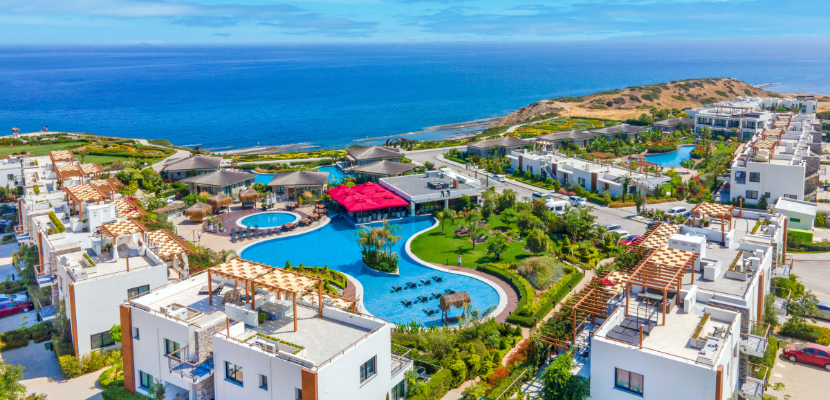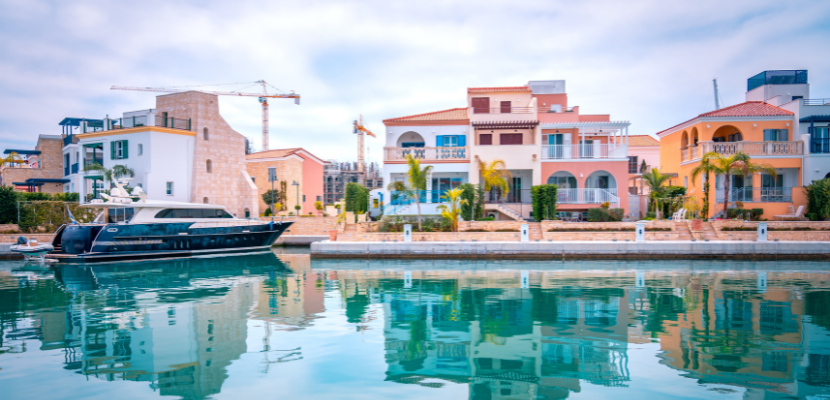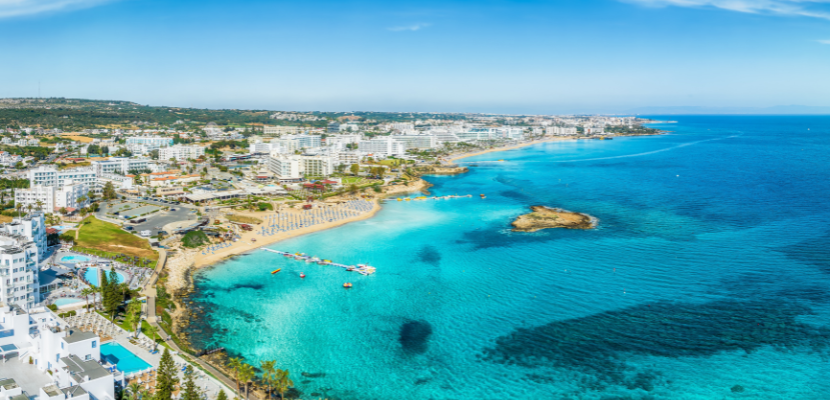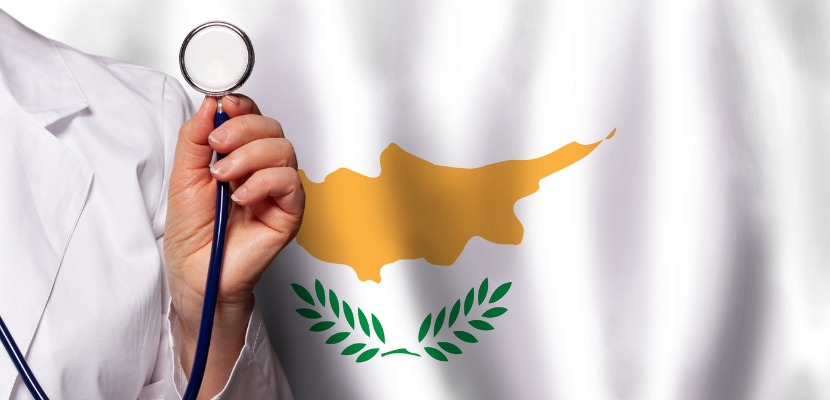
A Guide to Cyprus
It started during the pandemic but, three years on, the upward trend for Cyprus has not stopped.
In 2025, it is number four in the Best Places to Buy Abroad index, up from five in 2024, and its highest ever position in our annual rankings over two decades.
Retirees have long loved its laid-back Mediterranean pace, alongside the reassuringly Anglo-friendly culture of the Commonwealth country but in recent months its tax benefits are also a big draw.
There’s also the big plus that English is widely spoken in Cyprus, and left-hand driving is another familiarity, as are three-pin plugs. Its legal system is based on English common law.
Quality of life remains a strong priority for buyers, and of course the climate helps: 18-degree days in February provide a great outdoor lifestyle – and the 4.5-hour flight from the UK makes it easier and cheaper to reach than Florida or Dubai.
There are around 30,000 Britons living in Cyprus. The cost of living in Cyprus is 19% lower than the UK, according to numbeo.com, but the average net salary is much lower - £1,354 per month compared to £2,420 in the UK.
But most British people do not go there to work (and are not allowed to). The income requirement for residency is very achievable and the cost of living is much lower than many other countries.
Here are some basics for buyers.
The property market

It’s not just Britons who buy in Cyprus, which makes for a strong property market: it is now a global holiday destination at the crossroads of East and West, with investors from Lebanon, Israel, eastern Europe and – since 2024 – more Americans.
In Cyprus, property sales increased by 21% at the start of 2025, compared to the same period in 2024, according to official figures from the Department of Land & Surveys.
Sales to overseas buyers rose by 12% compared to 2024. Sales increased across all districts except for Nicosia, where they declined by 10%. Famagusta increased by 74%, then Larnaca at 18%. Famagusta includes Paralimni and Protaras – and some of the island’s best beaches.
On aplaceinthesun.com the average search budget for a property in 2024 was £205,000, which buys a small house or apartment, depending on location.
The favourite Cypriot locations on the website are around the Paphos area: Chloraka, Coral Bay, Sea Caves and Droushia; whilst Drosia (Lanarca) and the Protaras area remain popular.
The British remain active at mainly the lower and middle sections of the market, spending typically up to around €350,000 on a villa with a private swimming pool.
Purchase costs and annual taxes

Buyers need to pay Stamp Duty of 0.15% for properties under €170,860 and 0.2% over that (for the legal stamping of the contract). All new-build (brand new) properties are subject to IVA (or value added tax, VAT) at 19%.
Property Transfer Fees (like UK stamp duty) are payable on the transfer of the title deeds to a property in Cyprus – it is based on a sliding scale from 3 to 8% depending on the value of the property. For instance, for the first €85,000 of a property’s value, you pay 3% of the purchase price; between €85,001 and €170,000, the rate is 5%; and over €170,000 the rate is 8%.
These figures are based on the property being bought in one person’s name. If there are two names on the contract (i.e. husband and wife), the purchase value is divided between the two and each is assessed separately, and a saving might be made. Legal fees in Cyprus are usually charged as a percentage of the property purchase price – typically 1-2% plus IVA (VAT).
Once you are an owner, good news that the principal council tax in Cyprus, known as Immovable Property Tax (IPT) has been abolished. There are however municipality/community taxes, to cover other local services – perhaps €250-€350 a year, depending on location.
Residency

The income requirement for residency is very achievable and the cost of living is much lower than many other countries.
If you have an EU passport you will apply for the so-called Yellow Slip (officially known as the MEU1).
If you do not, the easiest option is the Temporary residency permit (Pink Slip). This one-year renewable visa is the most popular visa in 2025. You will need to show adequate income from abroad to cover living expenses while residing in Cyprus: an annual income which in total should be not less than €2,000 per month or €24,000 per year for one person. This amount increases by 20% for the spouse and 15% for each child.
Applicants need to have a deposit of €10,000 in Cypriot bank for themselves, increased by an amount between €5000 - €10,000 if the spouse is also applying. They must either be renting or have bought a house or apartment in Cyprus.
It does not entitle them to work in Cyprus and is valid for one year and can be renewed on an annual basis. You can apply for Permanent Residency under either Category 5(F) or Regulation 6(2).
Category 6.2 (fast track) or ‘golden visa’ means you can apply for residency if you buy a new home from a developer. This must be worth at least €300,000 + VAT (5 or 19%).
Applicants need to show income from abroad of at least €50,000 for the main applicant which increases by €15,000 for the dependant spouse and €10,000 for each dependent child.
Category F Residency requires a property purchase of any re-sale value and temporary residence is renewed every year. There is no minimum amount that must be spent on the property that is being purchased and the property does not have to be from the primary market - it can be a resale property or a new-build of any value.
Healthcare

The Cypriot General Health System (GeSY) is high standard and ranks mid-range amongst EU comparables. However it is not free – there are small charges (co-payments) for prescriptions, GP visits and specialists.
Expats who are permanent residents of Cyprus and pay social security may be eligible to access GESY, plus those of UK state pension age can access it via the S1 Certificate from the NHS in the UK. Many Cypriots as well as expats have private insurance to avoid long waiting times in the public system.
Tax benefits

Cyprus is a relatively low-tax environment for individuals and businesses. Its corporate tax rate of 12.5% is one of the lowest in Europe and the country only taxes income earned locally making it attractive to international companies.
Non-dom status is available to those who are not tax residents in Cyprus for at least 20 years prior to their application, and has significant tax advantages.
This includes no tax on passive income, such as dividends and interest, for 17 years. This makes Cyprus attractive for those, including retirees, who earn income from investments. Capital gains are also exempt – from the sale of shares, stocks, bonds and the sale of foreign property. There is no inheritance, wealth or gift tax in Cyprus.
Retirees can choose between a flat rate of 5 per cent tax on pension income (above a tax-exempt allowance of €3,420); or you can be taxed at normal tax rates (after €19,500 personal allowance) of 20 per cent up to income of €28,000, then it rises progressively to 35% for income over €60,000. The switchover point is if you earn around €25,000 per year – seek advice.
Cyprus has a double taxation agreement (DTA) with the UK.